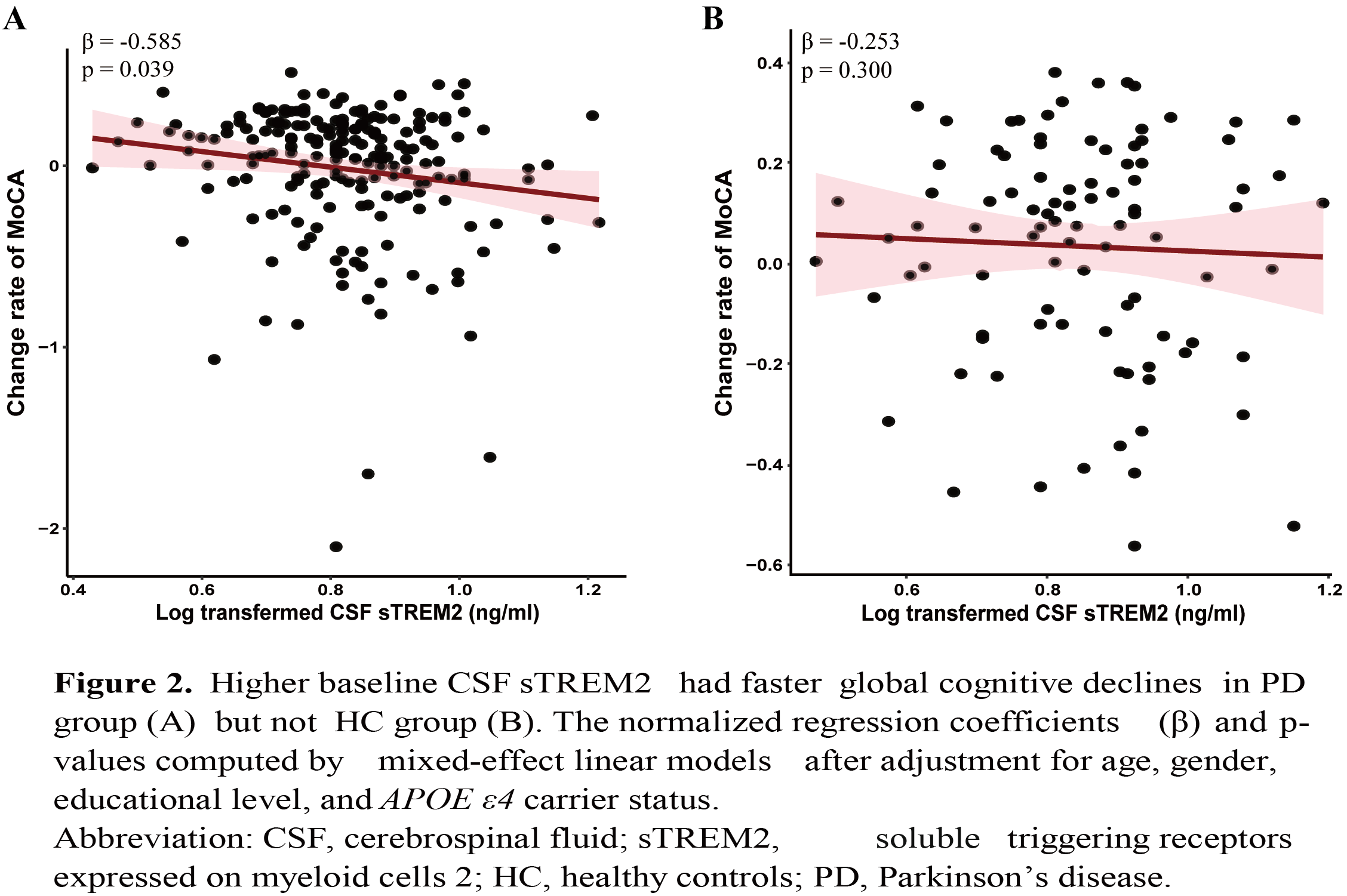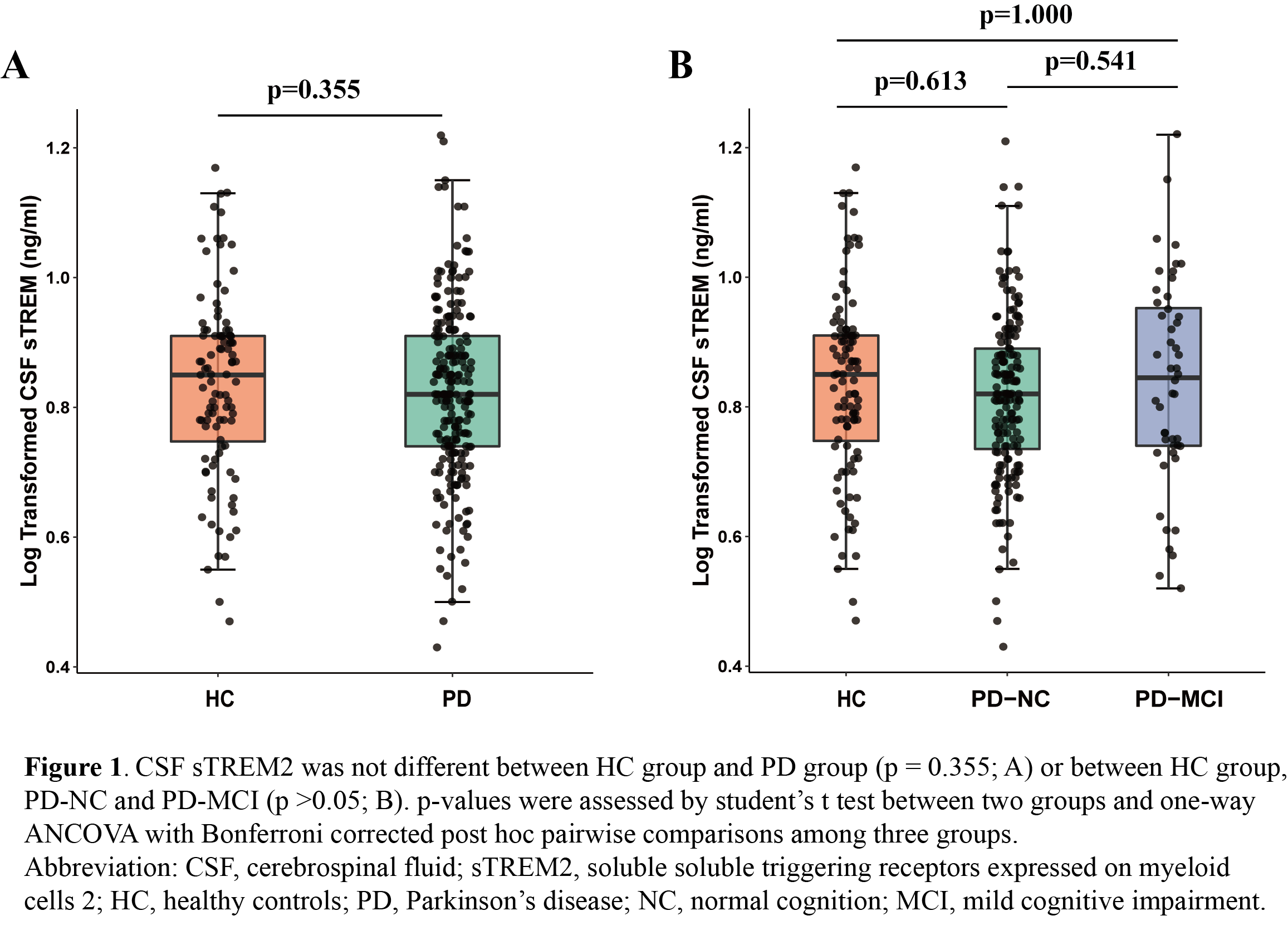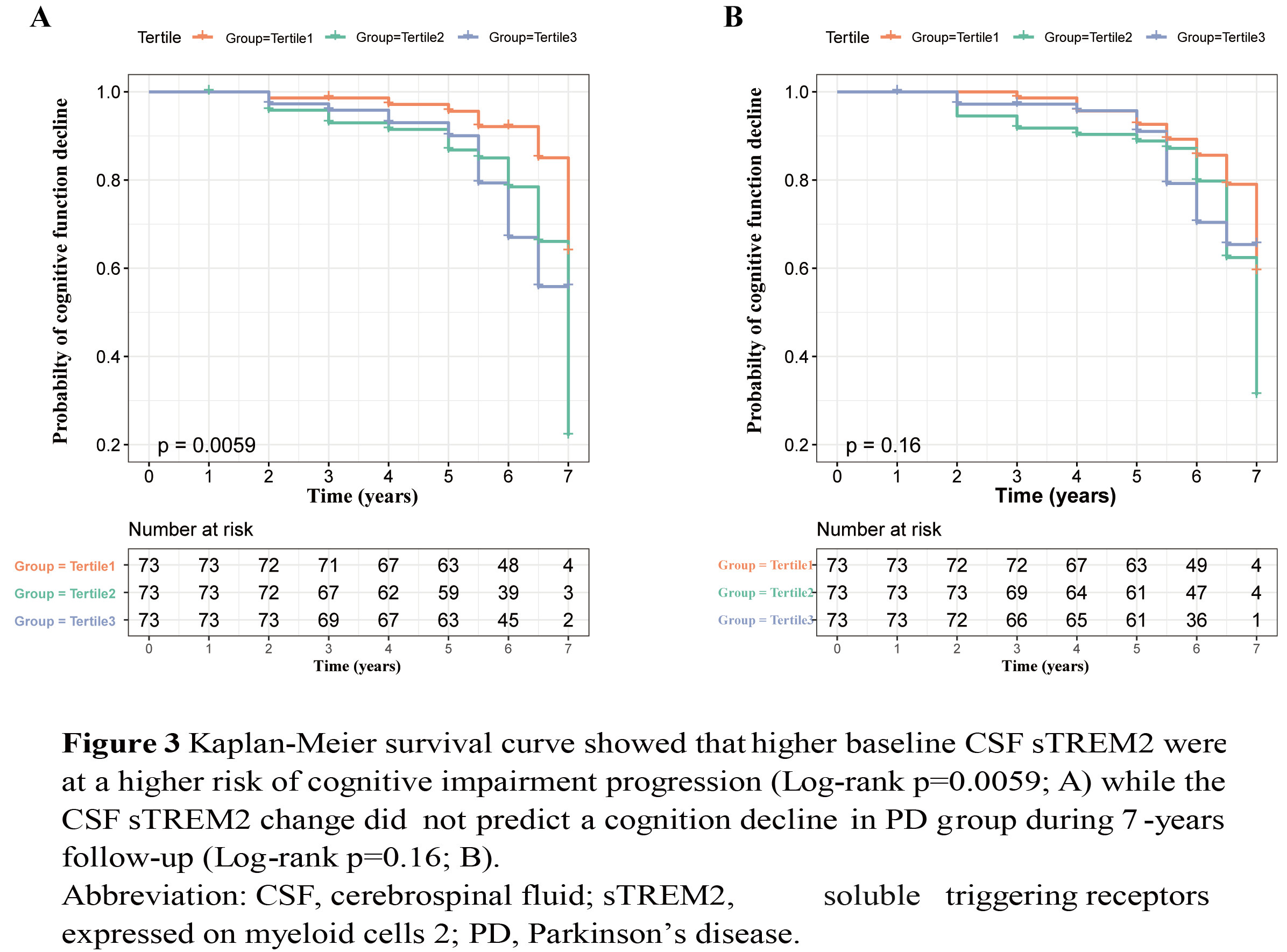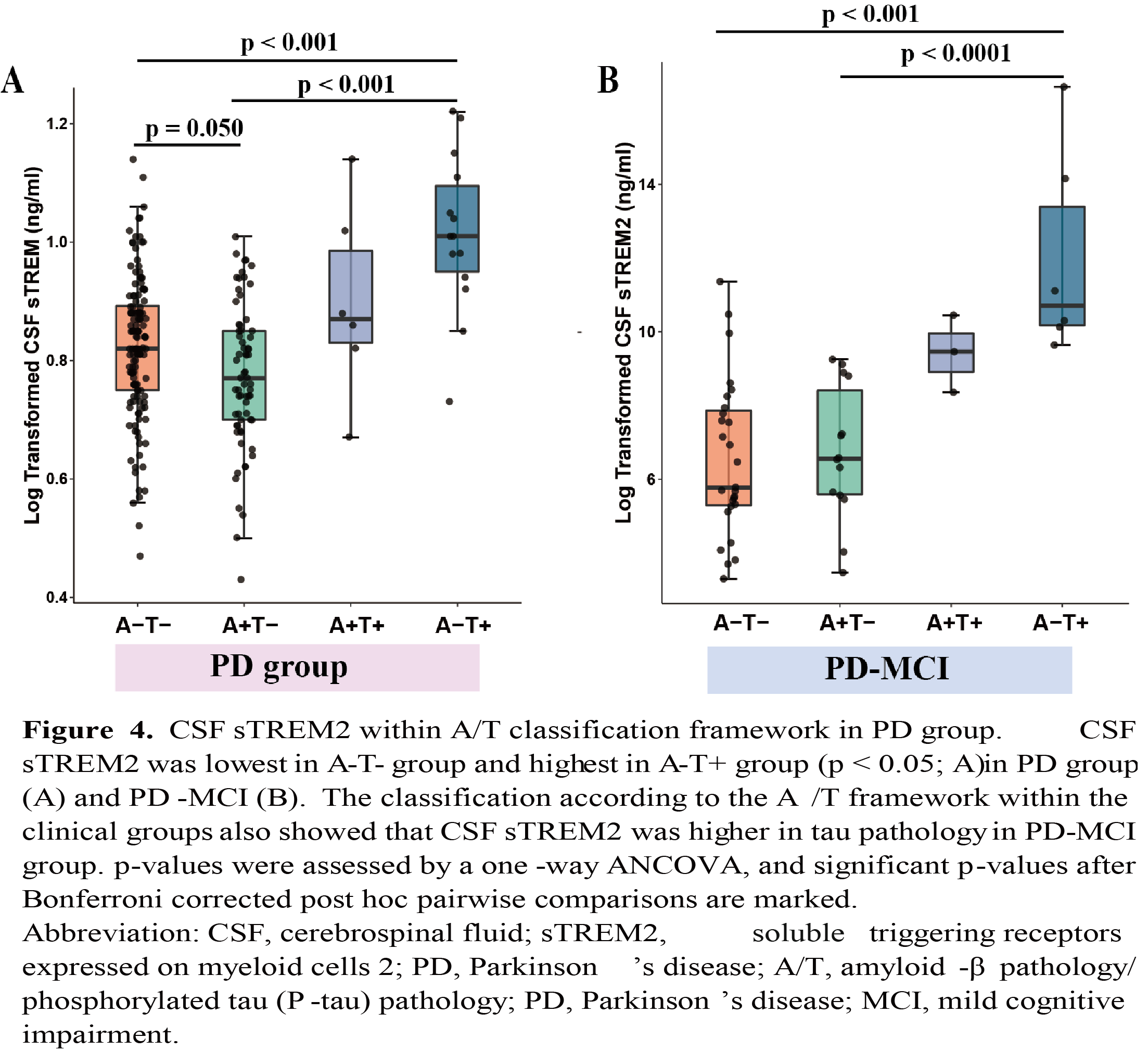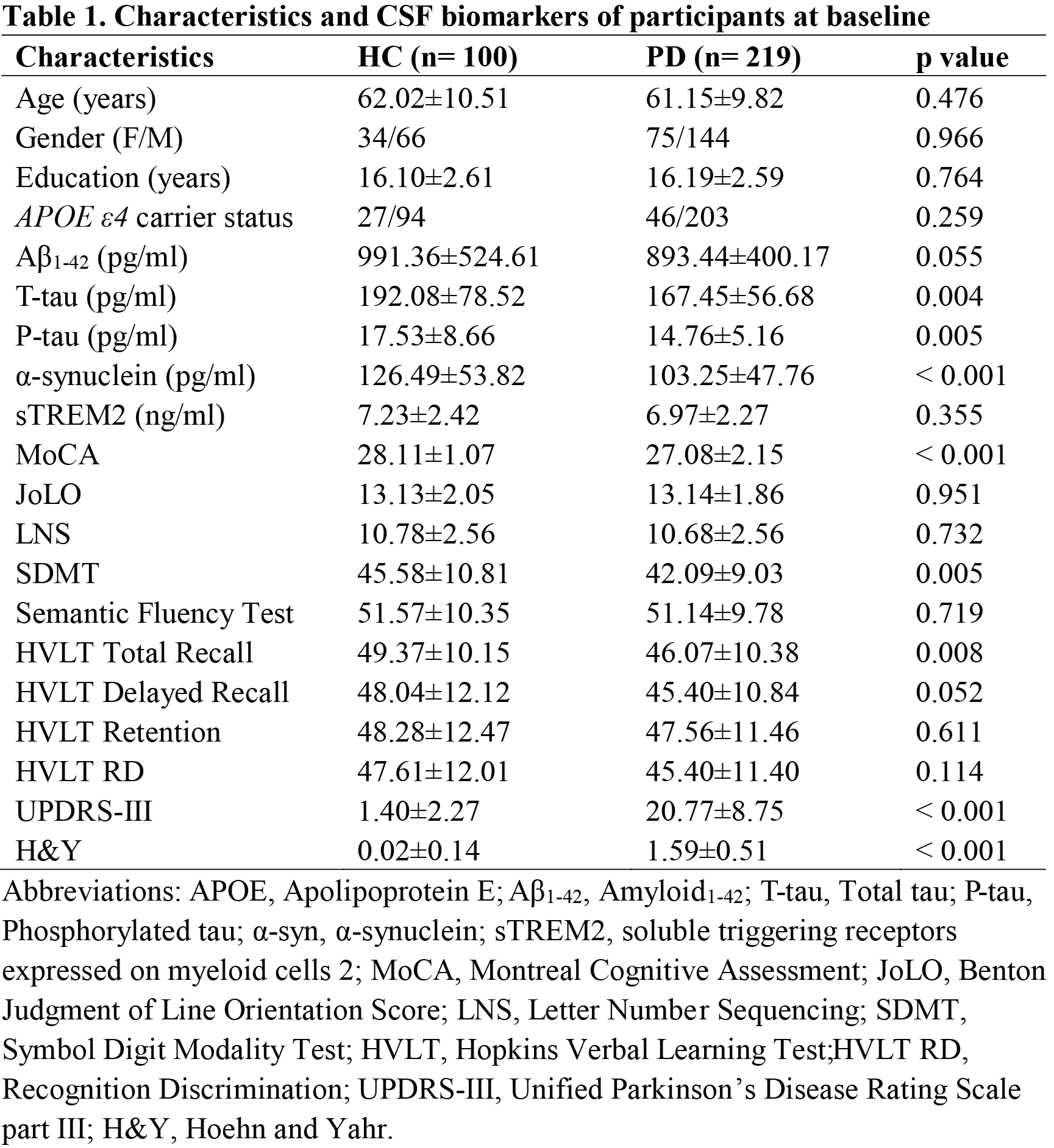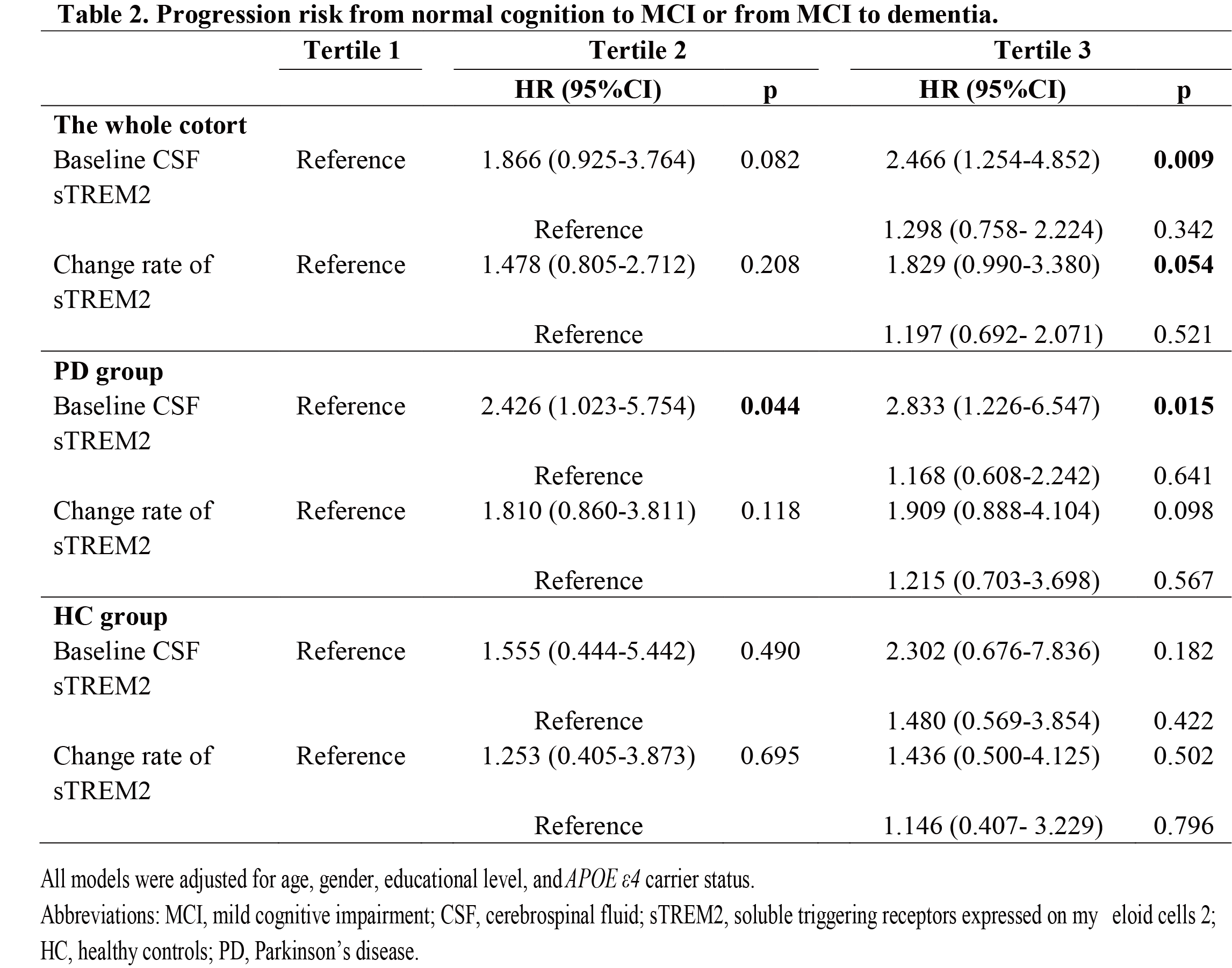Category: Parkinson's Disease: Cognitive functions
Objective: This study aims to investigate the baseline and longitudinal changes of soluble fragments of triggering receptor expressed on myeloid cells 2 (sTREM2) in cerebrospinal fluid (CSF) in PD patients and to assess its association with cognitive decline.
Background: CSF sTREM2 is a promising biomarker of microglial activation and neuron injury in neurodegenerative diseases. However, due to longitudinal data were deficient in previous studies, the dynamic changes of CSF sTREM2 in PD and its role on cognitive decline are unclear. Parkinson’s Progression Markers Initiative (PPMI) database is a multicenter, longitudinal and observational cohort that provides standardized longitudinal data for investigating biomarkers of PD progression.
Method: This study included 219 de novo PD patients and 100 healthy controls from PPMI. All enrolled participants had an available baseline CSF sTREM2 and had at least one additional monitoring CSF sTREM2 during the follow-up. Cross-sectional and longitudinal associations between cognition and CSF sTREM2 were evaluated using multivariable-adjusted models. To assess the changes of CSF sTREM2 during the pathology of PD, patients were classified through the A/T classification framework, which we implemented based on the CSF Amyloid β-peptide 1-42 (A) and phosphorylated tau (T).
Results: CSF sTREM2 did not differ between healthy controls and PD patients or between PD clinical subgroups (p > 0.05). However, higher baseline CSF sTREM2 predicted greater global cognitive decline in PD patients (β = -0.585,p = 0.039). Moreover, after a mean follow-up of 5.51±1.31 years, baseline CSF sTREM2 that elevated in the second tertile (HR = 2.426, 95% CI: 1.023-5.754, p = 0.044) and third tertile (HR = 2.833, 95% CI: 1.226-6.547, p =0.015) were associated with a future high risk of cognitive decline. Additionally, CSF sTREM2 decreased in abnormal Aβ pathology (A+) but normal tau pathology, while increased in abnormal phosphorylated tau (T+) (p < 0.05).
Conclusion: CSF sTREM2 may be a promising predictor for the cognitive decline in PD rather than a diagnostic biomarker. The dynamic change of CSF sTREM2 in PD may help to the monitor of neuronal injury and microglial activity.
To cite this abstract in AMA style:
Q. Qixiong, W. Hengming, W. Danlei, L. Jingyi, Q. Yi, Z. Jingwei, L. Jiangting. The association of CSF sTREM2 with cognitive decline and its dynamic change in Parkinson’s disease: Analysis of the PPMI Cohort [abstract]. Mov Disord. 2022; 37 (suppl 2). https://www.mdsabstracts.org/abstract/the-association-of-csf-strem2-with-cognitive-decline-and-its-dynamic-change-in-parkinsons-disease-analysis-of-the-ppmi-cohort/. Accessed July 2, 2025.« Back to 2022 International Congress
MDS Abstracts - https://www.mdsabstracts.org/abstract/the-association-of-csf-strem2-with-cognitive-decline-and-its-dynamic-change-in-parkinsons-disease-analysis-of-the-ppmi-cohort/

